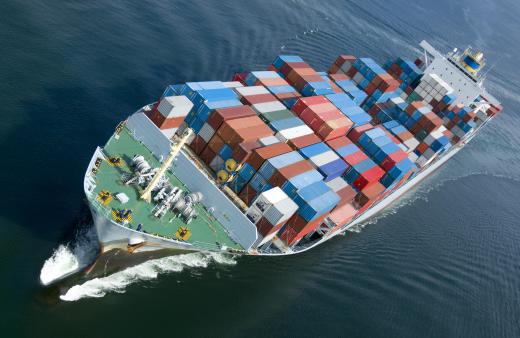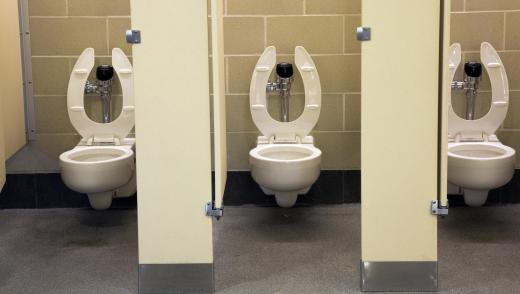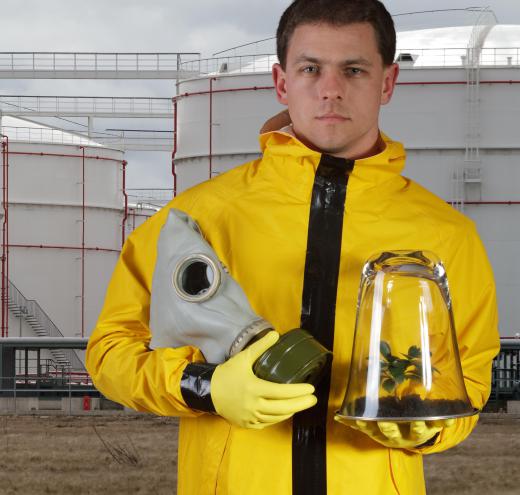Industrial sanitation is a series of practices which are designed to protect the health and safety of workers in industrial environments, in addition to protecting the natural environment from industrial waste and pollution. Many nations have specific legal codes which pertain to industrial sanitation and set out standards for industrial facilities such as manufacturing facilities. These codes can be enforced by representatives of worker safety and environmental health agencies who may inspect facilities, issue citations if violations are identified, and order facility closures in the event of gross violations.
There are a number of sanitation issues which need to be considered with industrial facilities. One is basic sanitation, which includes keeping the facility clean and orderly so that it is pleasant and safe to work in. This includes ventilation, basic housekeeping services, and so forth. Employees also need to access sanitation measures which will help them stay safe and clean, such as working toilets, showers, lockers for storing belongings, and so forth. Sanitation includes training in safe practices and programs which incentivize observation of sanitation regulations.

Another aspect of industrial sanitation is control of waste at an industrial site. Waste management includes everything from securing chemicals used in manufacturing to ensuring that shipping containers are reused or properly disposed of. A contract with a waste management company may be required, with the company demonstrating that it is controlling and handling waste by securing the services of a company which can handle industrial waste. Special waste management needs, such as dealing with radioactive or biowaste, may need to be handled by a separate company.

Industrial sanitation needs include access to clean water, clear protocols for handling waste materials, and control of equipment used in the facility to confirm that it is not polluting or exposing workers to dangerous situations. Sanitation measures also include steps taken to protect the integrity of the product, such as refrigeration for meat in slaughterhouses, and biological hazards protection at pharmaceutical facilities to ensure that products do not become contaminated.

The needs for different facilities are quite variable. When establishing an industrial facility, a consultant can be hired to outline the needs and develop a plan which will address them and provide room for modifications and improvements in the future. Since the sanitation code often changes, it is important to use a consultant who is familiar with the latest industrial sanitation regulations, and to accommodate government inspectors who may provide additional advice about complying with the law and keeping a facility safe.
Ever since she began contributing to the site several years ago, Mary has embraced the exciting challenge of being a About Mechanics researcher and writer. Mary has a liberal arts degree from Goddard College and spends her free time reading, cooking, and exploring the great outdoors.

